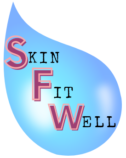There are hundreds of products on the market with ingredients that can make your acne worse.
Choosing between what works best for you and what is actually good for your skin is difficult.
Find a consolidated list below on ingredients to avoid that will cause more acne, and most importantly, why you should avoid them.
Table of Contents
Fragrances
Fragrance has no place in skincare. The only benefit to fragrance is that it makes your routine feel more “luxurious” or enjoyable to do.
They not only irritate the skin, but can also lead to clogged pores and further breakouts.
This is especially important when it comes to leave-on products, such as makeup and skincare.
The more time fragrances have to come into contact with your skin, the more damage they can do.
Limonene
Limonene is a common fragrance in many makeup and skincare products.
It is classified as a skin sensitizer (1). This means that it can lead to skin irritation, redness, and itching.
Many fragrances, including limonene, are allergens. Often, they are mixed with many other combinations of fragrances which means that the skin is exposed to a mix of allergens, and thus your skin has a greater chance of being reactive.
Common fragrances in skincare include linalool, geraniol, and citronellol.
These all impart an irritating effect on the skin, which can lead to inflammation and breakouts.
Oils
While some oils provide anti-inflammatory effects on the skin, it is important to note that not all oils are beneficial to the skin.
Olive Oil
This oil is great for cooking but not great for your face.
Studies have shown that olive oil can actually damage the skin barrier if applied topically (2).
Olive oil also increases water loss in the skin (2).
While it may promote some antioxidant effects on the skin, its ability to negatively affect the skin barrier should be enough to stay away from this oil.
This oil penetrates into the skin deeper than oils such as coconut oil and avocado oil (2).
In this way, it can lead to more irritation than other oils, leading to clogged pores and breakouts.
Coconut Oil
While coconut oil exhibits antibacterial and antifungal properties, it tends to break people out.
Once applied, the oily texture tends to aggravate oily skin leading to acne formation.
Avocado Oil
Due to its thick consistency, avocado oil can be irritating to the skin and clog the pores.
Dyes
Coloured dyes, primarily in makeup products, can cause hypersensitivity in the skin (3).
Dyes such as paraphenylenediamine (PPD) found in henna for example, can cause allergic reactions (3).
Other substances can cause phototoxicity. This causes sensitivity and irritation in the skin when it is exposed to UV light (3). An example of this includes deep red dyes and eosin (a fluorescent dye).
Other dyes, such as D & C red also impart an irritating effect on the skin as they are coal tar derivatives (4).
Certain Emollients
Isopropyl myristate is a type of emollient that has been found to be problematic for acne-prone skin (4).
Other derivatives including isopropyl palmitate, isopropyl isostearate, and isostearyl neopentanoate have all shown to promote skin reactions in rabbit ear assays (4).
Lanolin is another ingredient found in creams and lip products that have been shown to cause acne flares (4). Be wary of this ingredient in lip masks and face moisturizers, as they can cause issues around the mouth.
Fatty Acids
Fatty acids like octyl palmitate (also known as ethylhexyl palmitate) can impart an oily effect on the skin, leading to breakouts (4).
Oils high in oleic acids tend to clog pores as well. These include safflower and soybean oil.
Patients suffering from acne often have an increased amount of oleic acid on the skin. Adding more oleic acid to the skin will increase acne.
Here is a summary list of the pore clogging ingredients listed above:
- Limonene
- Linalool
- Geraniol
- Citronellol
- Olive oil
- Coconut oil
- Avocado oil
- Paraphenylenediamine
- Eosin
- D & C red
- Isopropyl myristate
- Isopropyl palmitate
- Isopropyl isostearate
- Isostearyl neopentanoate
- Lanolin
- Octyl palmitate (ethylhexyl palmitate)
- Safflower oil
- Soybean oil

References
- Panico A, Serio F, Bagordo F, Grassi T, Idolo A, DE Giorgi M, Guido M, Congedo M, DE Donno A. Skin safety and health prevention: an overview of chemicals in cosmetic products. J Prev Med Hyg. 2019 Mar 29;60(1):E50-E57. doi: 10.15167/2421-4248/jpmh2019.60.1.1080. PMID: 31041411; PMCID: PMC6477564.
- Lin TK, Zhong L, Santiago JL. Anti-Inflammatory and Skin Barrier Repair Effects of Topical Application of Some Plant Oils. Int J Mol Sci. 2017 Dec 27;19(1):70. doi: 10.3390/ijms19010070. PMID: 29280987; PMCID: PMC5796020.
- Zukiewicz-Sobczak WA, Adamczuk P, Wróblewska P, Zwoliński J, Chmielewska-Badora J, Krasowska E, Galińska EM, Cholewa G, Piątek J, Koźlik J. Allergy to selected cosmetic ingredients. Postepy Dermatol Alergol. 2013 Oct;30(5):307-10. doi: 10.5114/pdia.2013.38360. Epub 2013 Oct 30. PMID: 24353491; PMCID: PMC3858659.
- Fulton JE Jr, Pay SR, Fulton JE 3rd. Comedogenicity of current therapeutic products, cosmetics, and ingredients in the rabbit ear. J Am Acad Dermatol. 1984 Jan;10(1):96-105. doi: 10.1016/s0190-9622(84)80050-x. PMID: 6229554.


Pingback: Does The Sun Make Post-Inflammatory Erythema Worse? | Skin Fit Well
Pingback: Why Your Oil Cleanser Is Breaking You Out - Skin Fit Well